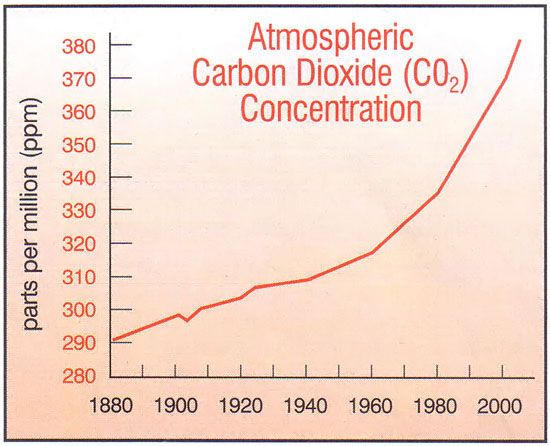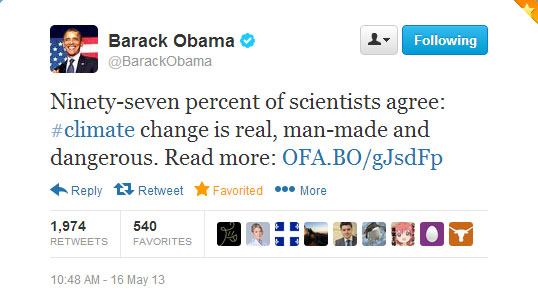 Often discussions on Climate Change will have the observation that there is a 97% consensus that it is all quite real, and since that message is getting out it is very often quoted …
Often discussions on Climate Change will have the observation that there is a 97% consensus that it is all quite real, and since that message is getting out it is very often quoted …
Ever so slight flaw, in reality it is not 97% of scientists who agree, and so that prompts a few questions such as “where does 97% come from?”, and if it is not correct, there what is the percentage?”
Where does the 97% come from?
Its origins rest with a paper published back in 2013 that examined 11,944 climate abstracts from 1991–2011 matching the topics ‘global climate change’ or ‘global warming’. There they concluded …
We find that 66.4% of abstracts expressed no position on AGW, 32.6% endorsed AGW, 0.7% rejected AGW and 0.3% were uncertain about the cause of global warming. Among abstracts expressing a position on AGW, 97.1% endorsed the consensus position that humans are causing global warming. In a second phase of this study, we invited authors to rate their own papers. Compared to abstract ratings, a smaller percentage of self-rated papers expressed no position on AGW (35.5%). Among self-rated papers expressing a position on AGW, 97.2% endorsed the consensus. For both abstract ratings and authors’ self-ratings, the percentage of endorsements among papers expressing a position on AGW marginally increased over time. Our analysis indicates that the number of papers rejecting the consensus on AGW is a vanishingly small proportion of the published research.
James Lawrence Powell Disagrees
James Lawrence Powell, (executive director of the National Physical Science Consortium, president of three colleges, and of the Franklin Institute, and the Los Angeles County Museum of Natural History), has an article in which he points out the issues with the methodology for the above 97% and he makes a very good case that it is even higher …
The sine qua non of the Cook et al. method is the assumption that publishing scientists who accept a theory will say so—they will “endorse” it in the title or abstract. To count an article as part of the consensus, Cook et al. required that it “address or mention the cause of global warming.” Of the 11,944 articles that came up in their search, 7,970—two thirds—did not. Cook et al. classified those articles as taking no position and thus ruled them out of the consensus.
In other words, you can’t discard two-thirds and then derive a percentage of the the consensus … I agree.
Generally where there is a scientific paper on a topic that has a prevailing scientific consensus, the writers do not generally endorse or refute that consensus, but rather assume the underlying assumption, for example papers on evolutionary biology do not generally endorse Dawin’s theory.
So taking this point on board, he has a refined number …
Putting all this together, I argue that we can judge the extent of the consensus by the number of articles that explicitly reject AGW. Cook et al. found seventy-eight, 0.7 percent, that did so. From that one can infer that the authors of 99.3 percent of the articles in the Cook et al. database accept AGW. This would be the average over the twenty years of their survey. More recently, the percentage of acceptance has grown even higher.
I used the Web of Science to review the titles and abstracts of peer-reviewed articles from 2013 and 2014, adding the search topic “climate change” to “global climate change” and “global warming.” Of 24,210 abstracts, only five—one in 4,842 or 0.021 percent—in my judgment explicitly rejected AGW. Two of the articles had the same author, so four authors of 69,406 rejected AGW. That is one in 17,352, or 0.0058 percent.
This result would allow the claim that 99.99 percent of scientists publishing today accept AGW. To be conservative, I prefer to say above 99.9 percent.
Disagreement between Mr Powell and Mr Cook?
Sure, why not, that is the point of publishing such papers. A paper published within a peer-reviewed journal is not the end of the conversation, but rather it is the start or continuation of one, and as long as that conversation is evidence-based then it is not just wholly appropriate and necessary, but rather is the norm.
